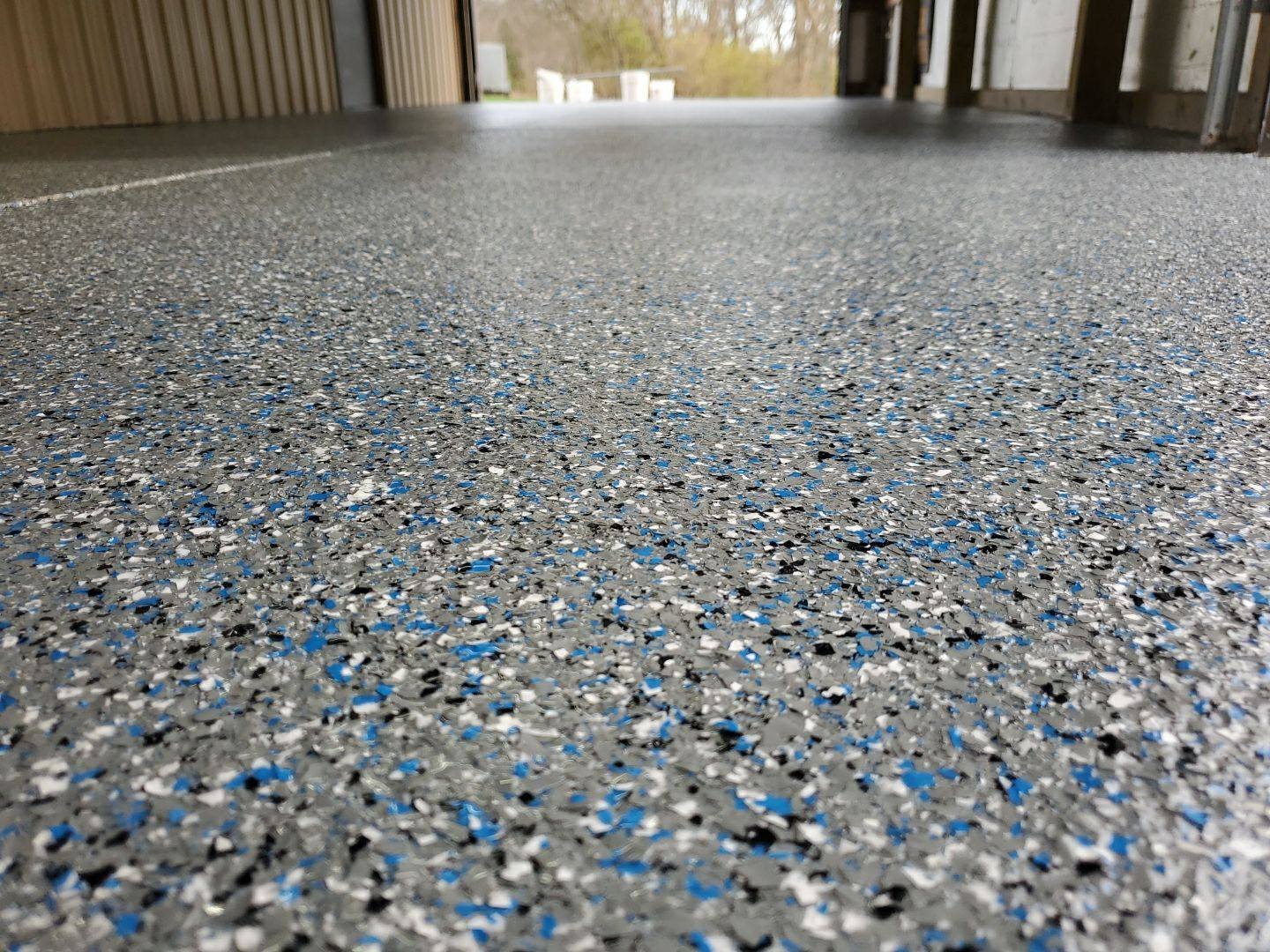Maximizing Business Potential with Commercial Epoxy Floor
Are you in the market for a reliable flooring solution that can both withstand heavy traffic and add an extra layer of protection to your place of business? If yes, commercial epoxy floor may be just what you need! Not only does it offer superior durability, but it is also highly versatile and aesthetically pleasing. From retail stores to supermarkets, scrap yards to tool rooms—epoxy floors have countless applications in different types of businesses. In this blog post, we will discuss the many benefits of utilizing commercial epoxy flooring as well as tips on how you can maximize its potential!
Benefits of Commercial Epoxy Flooring for Businesses
Commercial epoxy flooring offers a multitude of benefits for businesses across various industries.
- Durability and Longevity: Epoxy flooring is known for its robustness and resilience. It can withstand heavy traffic, impacts and abrasions, making it a long-lasting solution for high-traffic areas in a commercial setting.
- Ease of Maintenance: Epoxy flooring is easy to clean and maintain, reducing the time and effort required to keep your flooring in top shape. Its seamless surface doesn’t harbor dirt or bacteria, making it a hygienic choice for businesses.
- Safety: It provides a non-slip surface, preventing accidents and improving workplace safety. Moreover, it is resistant to heat and fire, adding an extra level of protection.
- Aesthetics: Available in a wide variety of colors and patterns, epoxy flooring can enhance the look of your premises, reflecting your brand’s image and professionalism.
- Cost-Effective: Compared to other types of commercial flooring, epoxy offers high performance and longevity at a relatively lower cost, making it a cost-effective choice for businesses.
By understanding these benefits, businesses can leverage epoxy flooring to their advantage, creating a safer, more efficient, and visually appealing workspace.

Commercial Epoxy Floor
Factors to Consider When Selecting an Epoxy Flooring Provider
When choosing a provider for your commercial epoxy flooring, there are several factors you should consider to ensure you’re getting the best quality service and product.
- Experience: Look for a provider with a significant amount of experience in the field. They’ll be more likely to understand your specific needs and provide a high-quality, durable flooring solution.
- Reputation: A provider’s reputation can give you excellent insight into the quality of their work. Check online reviews and testimonials and ask for references to learn about other customers’ experiences.
- Comprehensive Services: Opt for a provider offering comprehensive services from consultation, installation, to after-sales service. This ensures a seamless process from beginning to end.
- Quality of Materials: The quality of the epoxy material used will directly impact the durability and finish of your floor. Make sure your provider uses high-quality, commercial-grade epoxy.
- Price: While cost should not be the sole determining factor, it’s important to find a provider offering competitive pricing. However, beware of prices that seem too good to be true—they often are.
By considering these factors, you can ensure that you choose the right epoxy flooring provider for your business, maximizing the potential of your commercial space.
Cost Savings Associated with Epoxy Flooring Installation and Maintenance
Epoxy flooring installation and maintenance can contribute to significant cost savings for businesses in the long haul. In terms of installation, epoxy flooring, although may seem more expensive upfront, proves to be a more cost-effective solution when its lifespan is taken into account. It can last several years, even in demanding conditions, reducing the need for frequent replacements, thus saving on material and labor costs.
In addition to installation savings, the maintenance factor also plays a significant role in the overall cost-effectiveness of epoxy flooring. The seamless and non-porous nature of epoxy flooring makes it easy to clean and sanitize, reducing the need for elaborate cleaning equipment or specialized cleaning solutions. This results in decreased maintenance costs over time. Furthermore, the durability and resistance of epoxy floors to wear and tear also mean fewer repair costs.
Therefore, while the initial investment may be higher, the long-term cost benefits of epoxy flooring make it a worthwhile investment for businesses seeking a robust and reliable flooring solution.
Steps Involved in the Epoxy Floor Installation Process
The installation process of epoxy flooring involves several key steps:
- Surface Evaluation: The first step is to assess the current condition of the concrete floor. This includes checking for any existing coatings, sealers, or other materials that might interfere with the adherence of the epoxy.
- Preparation: The concrete floor is then prepared through grinding or shot blasting to remove any existing coatings and to roughen the surface for better adhesion. Any cracks or chips in the floor are repaired at this stage.
- Cleaning: The floor is thoroughly cleaned to remove all dust, dirt, and debris. This ensures a clean, smooth surface for the epoxy to adhere to.
- Primer Application: A primer is applied to the floor to enhance the bond between the concrete and the epoxy, and to prevent any moisture issues.
- Epoxy Application: Once the primer has dried, the epoxy mixture is prepared and applied to the floor using a roller or squeegee. The thickness of the application will depend on the specific requirements of the job.
- Sealant Application: After the epoxy has fully cured, a sealant is applied. This protects the epoxy from wear and tear and gives it a glossy finish.
- Curing: The floor is then left to cure for a specified amount of time. Walking on the floor too soon can damage the finish, so it’s important to allow ample time for curing.
With these steps, the installation process of epoxy flooring is completed, leaving you with a durable, easy-to-maintain, and aesthetically pleasing floor for your commercial space.
Advantages of Using Colored Epoxy for Businesses
Using colored epoxy for businesses provides several advantages that extend beyond the basic benefits of epoxy flooring:
- Customization: Colored epoxy allows businesses to customize their floors according to their brand colors or aesthetic preferences, creating a unique and attractive workspace.
- Visual Guidance: Different colors can be used to define specific zones or pathways within the commercial space, offering visual guidance to employees and visitors.
- Enhanced Aesthetics: Colored epoxy can enhance the overall look of a workspace, making it more vibrant and appealing. This can positively impact the mood and productivity of employees, and leave a good impression on visitors.
- Stain Resistance: Colored epoxy is resistant to stains, keeping the floors looking clean and new for a longer time.
- Visibility of Dirt: Light-colored epoxy can make dirt and dust more visible, ensuring that the cleaning needs are noticed and addressed promptly, thus maintaining a clean and hygienic work environment.
By leveraging these advantages, businesses can create a functional, visually appealing, and brand-aligned workspace that can boost employee morale, impress visitors, and maintain a clean and efficient work environment.

Commercial Epoxy Floor
Maintenance Tips to Keep Your Commercial Epoxy Floors Looking Great Over Time
To ensure your commercial epoxy flooring maintains its appearance and durability over time, consider the following maintenance tips:
- Regular Cleaning: Regularly sweep or dry mop the floor to remove dust and debris. For a more thorough cleaning, use a mild, non-abrasive cleaner and a soft bristle brush or mop.
- Spot Cleaning: Address spills and stains promptly to prevent them from setting in. Epoxy flooring is resistant to most stains, but certain chemicals or substances can potentially cause damage if left unattended.
- Avoid Sharp Objects: While epoxy floors are highly durable, they can still be scratched by sharp objects. Therefore, use caution when moving heavy equipment or furniture.
- Protect from Heavy Traffic: Use floor mats or protective pads in areas with heavy foot traffic or where heavy machinery is frequently used. This can help prevent premature wear and tear.
- Periodic Professional Maintenance: Depending on the level of traffic and the nature of your business, consider getting a professional maintenance service done every few years. This could include re-sealing the floor to restore its shine and protective properties.
By following these maintenance tips, you can prolong the lifespan of your epoxy flooring, keeping it looking fresh and attractive for years to come.
In conclusion, epoxy flooring offers a cost-effective, durable, and visually appealing solution for businesses looking to upgrade their commercial space. With proper installation and maintenance, it can provide long-term benefits that can positively impact the overall success of a business. So why wait? Consider investing in epoxy flooring for your business today and experience its many advantages first-hand.

